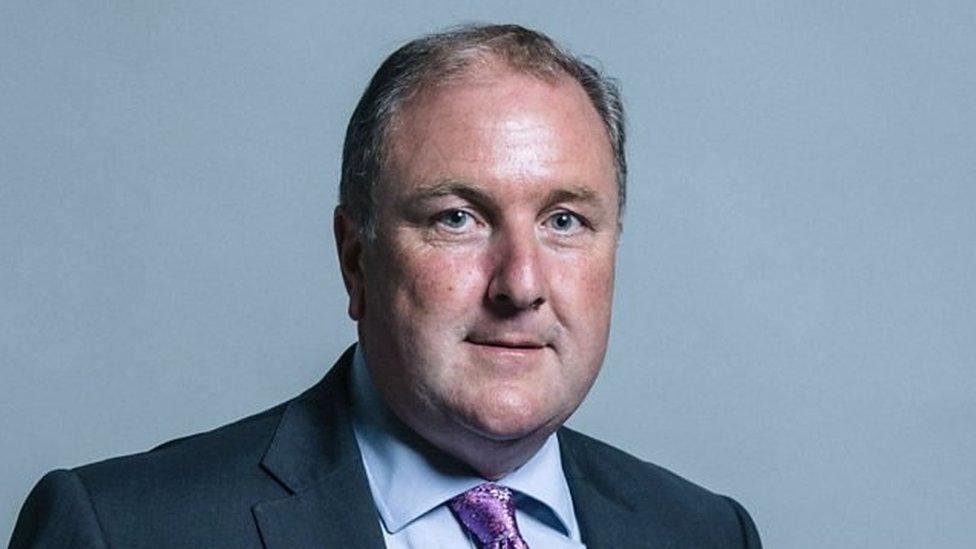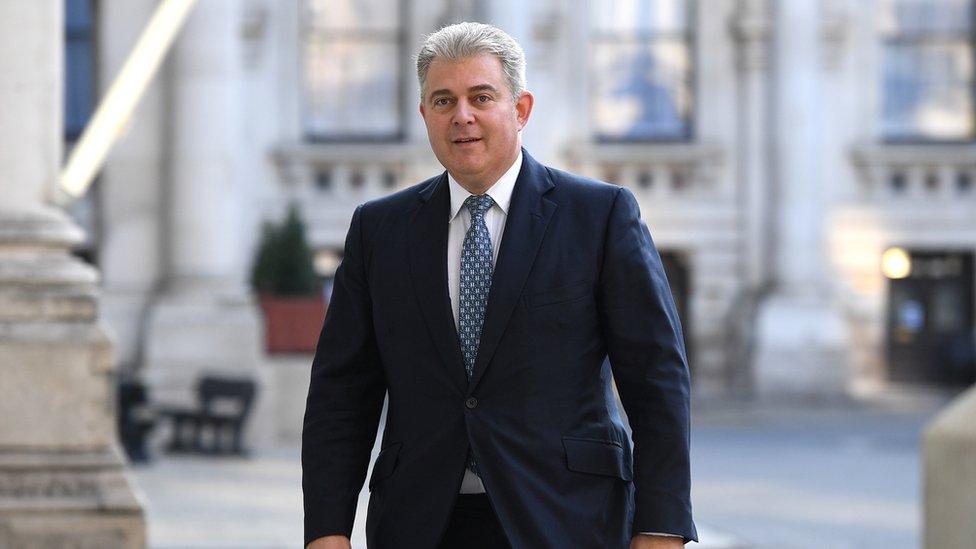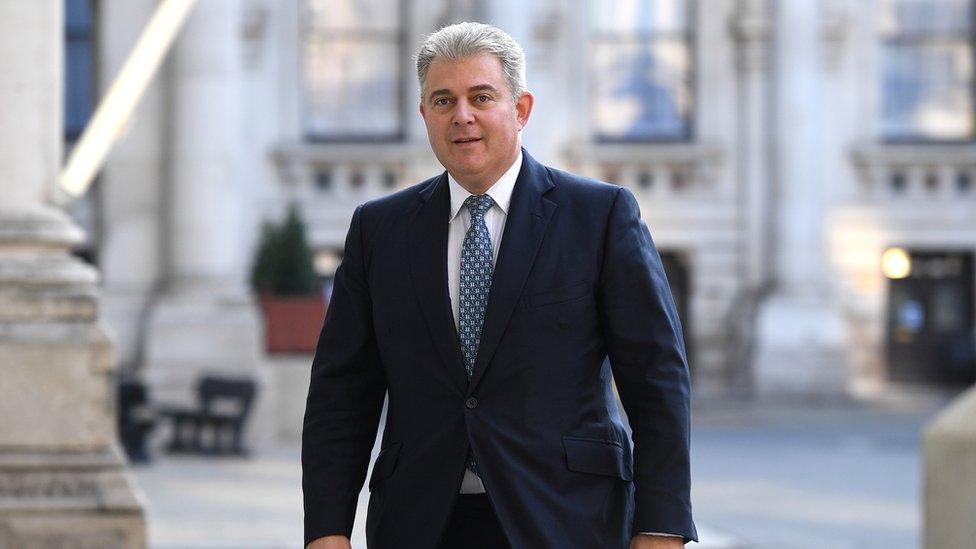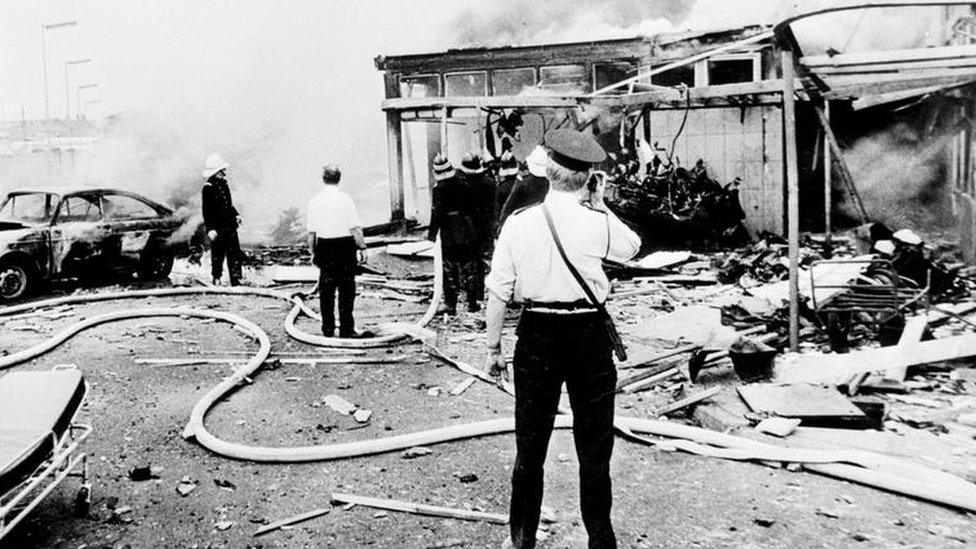Troubles legacy: MPs dismiss proposals as 'unhelpful'
- Published
The roots of Northern Ireland’s Troubles lie deep in Irish history
Government proposals for dealing with the legacy of the Northern Ireland Troubles are under fresh attack, with MPs dismissing them as "unhelpful".
The Northern Ireland Affairs Committee also said it was "dismayed" at a lack of consultation.
Its report stated the plan to permanently close cases of serious crimes "raises profound legal, ethical and human rights issues".
The 11-member committee includes five Conservative Party members.
Last March, the government set out new thinking on dealing with the past, which radically departed from what had been proposed in 2014 in the Stormont House Agreement.
Victims' group WAVE recently claimed Secretary of State Brandon Lewis was "dangerously deluded" if he thought the ideas will help reconciliation.
The committee said the lack of detail around the proposals was "deeply concerning" and urged the government to conduct "meaningful and transparent" consultations with parties and victims' groups.

Simon Hoare MP said the proposals were a unilateral departure from the Stormont House Agreement
The Conservative chairman of the committee, Simon Hoare, said: "The Stormont House Agreement, not without its weaknesses, had appeared to be the basis on which we could move forward.
"But the government's new proposals are a unilateral departure from that.
"We are calling on the government to urgently introduce legislation based on the core principles of the Stormont House Agreement and return to a collaborative approach, engaging with victims' groups, parties and where necessary the Irish government."
Mr Hoare told BBC NI's Good Morning Ulster that there was an opportunity for the Irish government to give their views, as the issue required "partnership and collaboration".
"We will wait to hear from them, very often they don't respond to these sorts of things, given the fact that it is a different country and we are a parliamentary committee in a different jurisdiction.
"But I think on this issue, given the need for cross-border co-operation and of course given the views that have been expressed by some ministers in the Irish government in response to what the UK government has been proposing then I certainly think it would be very helpful to our deliberations to receive their views."
Mr Hoare also said that following the committee's interim report, there was an opportunity for the Northern Ireland Office to "set out where it is and what its next steps are".

Victims' reaction
Jude Whyte, whose mother, Peggy, was murdered in a UVF bomb attack at the front of her home in Belfast's University Street in 1984, said that Northern Ireland was "22 years into a peace process" and "we are no further on with victims".
"That simply reflects the body politic I suppose in Westminster, that this place is a total irrelevance, it's somewhere out there and 'we have bigger things to deal with in this Covid-19 pandemic that we are in the middle of'.
"It is interesting when you read the report. Many of the comments are very solid and the critique of government policy is very solid, but people here have to realise that nobody really cares too much about what goes on here."
Mr Whyte told BBC NI's Good Morning Ulster it was an "intractable" issue the government was dealing with.
"People do not even agree on what a victim is," he said.
"This society really needs to stand up, take a serious look in the mirror and either deal with this issue or don't deal with it and the only way, in my view, to deal with this issue is very straightforward - we have to learn to forgive each other, we have to learn to deal with the past as a group of people - nobody is going to do it for us."
Rev David Clements, whose policeman father, William, was murdered by the IRA in 1985 at the gates of Ballygawley police station, said he was "glad" the NI Affairs Committee had issued an interim report but that it was "a shame" the NI Secretary had not appeared before the committee in September.
Rev Clements said the Stormont House proposals were built on "very solid principles" and he was "glad" that the committee had "reiterated" those "at least three times in the report".
He said the principles, which included "promoting reconciliation, upholding the rule of law, acknowledging and addressing the suffering of victims" were "very good ones on which to build".
"If the secretary of state, the Northern Ireland Office can come up with a better model and better suggestions then let them crack on with it and do it," he added.
"It will be almost impossible to find a scheme that everyone will buy into 100%, but surely we can do better than we are doing at the moment."

DUP MP Gregory Campbell and SDLP MP Claire Hanna both sit on the Northern Ireland Affairs Committee.
Mr Campbell said that the UK government needed to "take account of the many victims that there are" and that people needed to see "much more" than a written ministerial statement.
"That's what has caused the degree of anger that there has been, we need to see the substantive nature of the proposals to take us forward, that is what needs to happen so that the range of victims' groups know their views have been taken seriously and progress is going to be made," he said.
SDLP MP Claire Hanna said that "criticism" was not only "of the silence from the UK government", but that the proposals were "flimsy".
"They depart so massively from what was agreed among both governments and among nearly all parties and with support from victims' groups at Stormont House," she said.
The Shadow NI Secretary of State Louise Haigh accused Brandon Lewis of a "cavalier approach" which has "undermined trust with victims".
She added: "He must urgently re-think his approach before it is too late."

Northern Ireland Secretary of State Brandon Lewis was previously criticised by victims' group WAVE for a failure to consult on the proposals
As part of the New Decade New Approach deal, external in January, the government had pledged, within 100 days, to introduce legislation implementing the Stormont House Agreement.
Instead, however, it set out new proposals which have been seen, in part, as a way of curtailing future investigations into killings carried out by the Army during the Troubles.
The committee said its report was an interim one because the government had not yet provided a fuller explanation of its plan beyond a two-page written statement on 18 March.
It said the NI secretary had also pulled out of a planned oral evidence session in September.
The report stated: "While acknowledging the challenges caused by the Covid-19 pandemic, we would have expected further detail to be made available on the government's plans by this point."
"Delay and uncertainty perpetuate an unacceptable situation that has already gone on too long."
The MPs also called on the NI Executive Office to fill the victims' commissioner position vacated by Judith Thompson in the summer.
- Published20 October 2020

- Published9 September 2020

- Published18 March 2020
